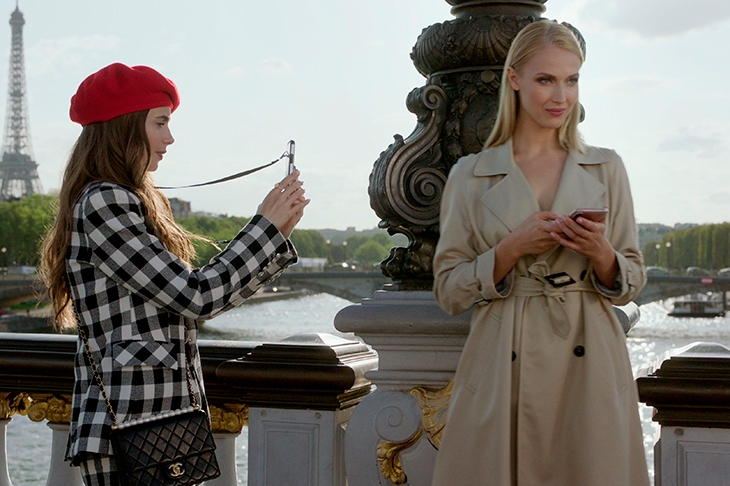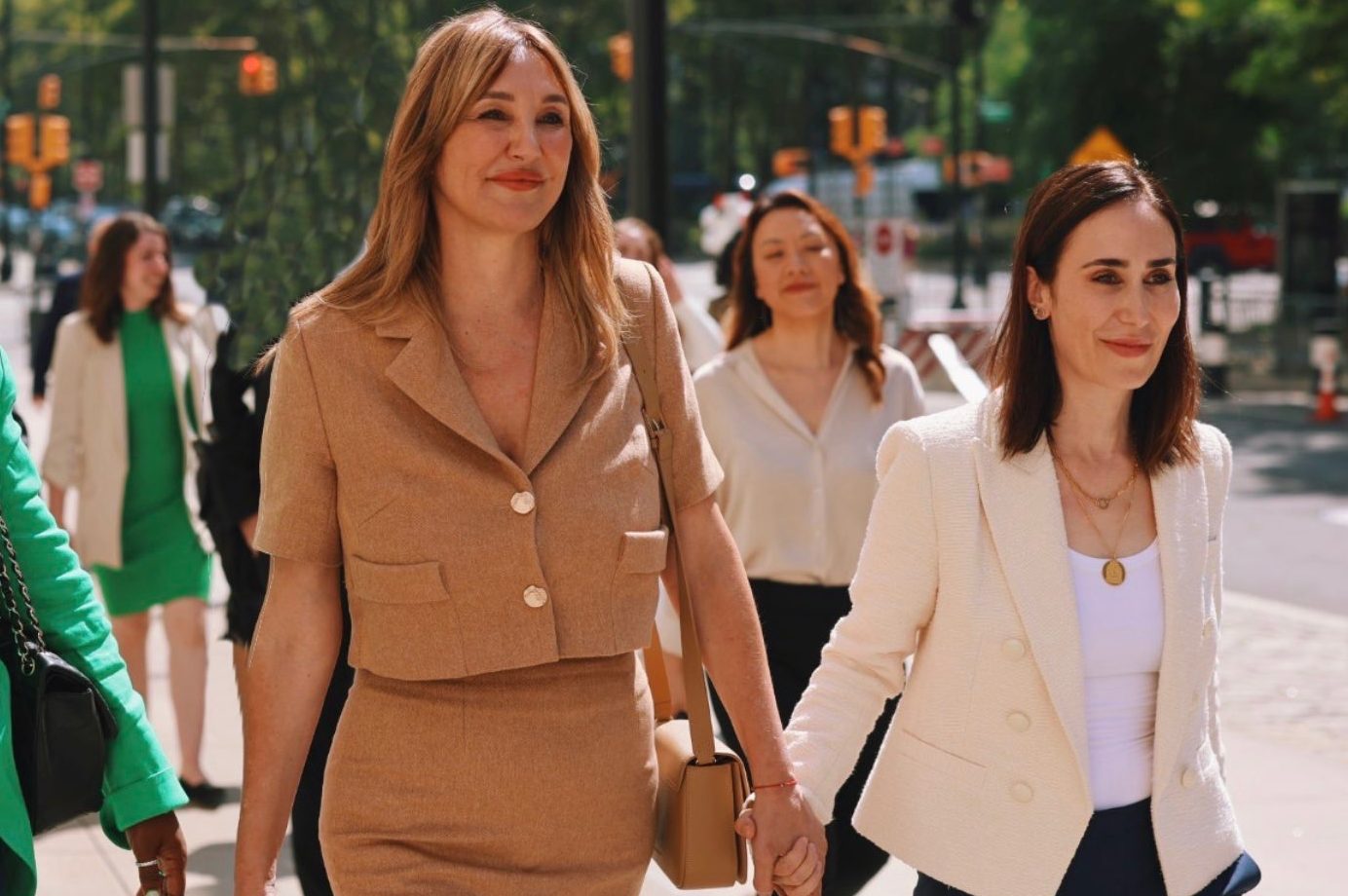A frothy new drama called Emily in Paris arrived on Netflix last month. Starring Lily Collins — daughter of Phil — it tells the story of a pretty social media ‘expert’ who moves from Chicago to Paris, where she manages to offend almost everybody she meets, and yet somehow triumphs. It is Eloise in Paris for the Instagram/Trump generation.
The show is a croquembouche-esque fantasy of Frenchness. Anorexic-looking chicks eat croissants and pretend to enjoy them. There are pre-war apartments with parquet flooring, and windows decorated with twinkling fairy lights. The men are handsome bastards who know how to cook omelettes. This is television designed for women the world over who desperately want la vie en rose but will settle for a bottle of pale, lukewarm rosé with some Serge Gainsbourg on in the background.
No surprise, then, that I loved it. I couldn’t help but wonder whether the writer, Darren Star of Sex and the City fame, had access to my secret Pinterest pages, the ones (to my shame) saved under titles that include ‘French girl style’ and ‘Paris apartment interiors’. I felt exposed and I’m sure I wasn’t the only one. Emily in Paris is a dreadful program, sans doute, but I watched every episode and found myself wanting more.
The chain-smoking bitches Emily meets in Paris refer to her as ‘ringarde’. In English, she is what Kate Moss would call a ‘basic bitch’: a woman obsessed with curating the perfect lifestyle, who loves home comforts. A woman whose iPhone case tells you everything you need to know about her personality. Nobody wants to be called a basic bitch.
Even Emily recognizes her own unoriginality. ‘You may mock us but the truth is…you need us. Without basic bitches like me, you wouldn’t be fashionable,’ she tells the show’s cartoonish male fashion designer, Pierre Cadault, when he mocks her for having an Eiffel Tower charm attached to her handbag. Aspiration isn’t a dirty word in Emily’s world.
The critics have mocked Emily, which will also come as no surprise. Americans lined up to defend the French (plus ça change) following Emily’s unprovoked attack on their country. A writer for New York magazine’s Vulture section accused the show of ‘trivializing a foreign culture already so subject to parody’. There’s more to France than berets, sex and the Moulin Rouge, didn’t you know.
The French, meanwhile, huffed about the way they had been depicted. ‘The clichés are so many and so concentrated that they pile up like a collection of little stories that become comical in their exaggeration,’ said Philippe Thureau-Dangin, who owns a French publishing house. ‘Maybe the creators of the series are trying to mimic Molière. Molière also exaggerated and created impossible situations for comic effect.’
Sophisticated members of the Anglosphere were keen to distinguish their own Francophilia from Emily’s more generic tastes. ‘I don’t understand why the show isn’t a little bit more knowing,’ said New Yorker staff writer Lauren Collins, knowingly. ‘If it is a metaphor for American imperialism, then it is an effective one,’ said Rebecca Nicholson in the Guardian. #JeNeSuisPasEmily was the thrust of it.
But what if we are more like Emily than we’d care to admit? What if she has made us nostalgic (eurgh, that most basic of emotions) for a time when we were able to travel? Many of us are now stuck at home, wishing we were elsewhere. Paris, which used to feel so close to London, now feels far away. And there’s Emily, with the audacity to actually be in the city of light, watching it all through her phone, and not even able to appreciate the culture. How dare she be living her #bestlife, while we aren’t living ours. We are stuck. We were anywheres; now we are somewheres. Merde.
[special_offer]
As we hunker down for the latest lockdown, hiding away from the threat of the virus, winter is looking likely to be a stretch of bland, cozy comfort. The coming months will smell of vanilla and cinnamon. They will feel fluffy and furry, thanks to all the soft furnishings and cute animals we’ve filled our homes with. Would you like another hot chocolate to go with your existential angst? Emily would adore all of it. Coronavirus is turning us into basic bitches.
Emily in Paris seems like a silly fantasy, but the fundamental story is in fact depressingly believable. With a recession hurtling our way and millions of jobs already being lost, phones may soon become more than just a tool for communicating; they may be a life raft. The social media platforms that have taken off in the past few years are deliberately designed to commercialize our lives and help us become ‘brands’ so that we can sell ourselves to other customers. More of us will need to follow this path, if only because many of the other traditional ones no longer exist. Take your pick: there’s Instagram for millennials, TikTok for Gen Z-ers and OnlyFans, which allows you to share explicit content with a paying audience, for perverts.
Emily is delighted when she starts to be taken seriously as an influencer and a make-up company wants to use her services. As her follower numbers rise, so does her capital. Her story is part fairytale, part horror show. We’re all in the gutter with Emily, peering up at the stars, desperately trying to work out how to make a pretty penny from the view.
This article was originally published in The Spectator’s UK magazine. Subscribe to the US edition here.

























